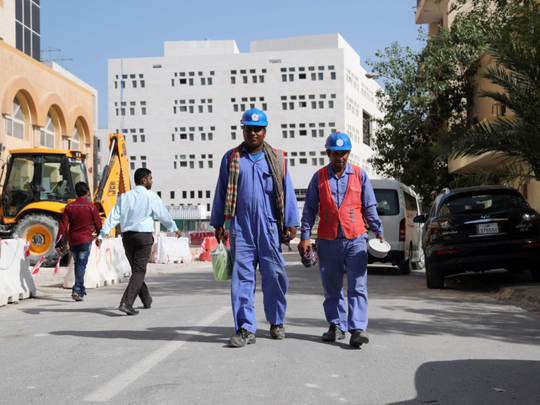
Doha: “I’ve heard about a change in the law, but what the change will be I don’t know,” says Girijesh, an Indian electrician, during his hour-long lunch break in downtown Doha.
The “change” he is referring to is arguably the single biggest labour overhaul ever to be undertaken by Qatar.
On Tuesday, the Gulf state is expected to announce the end of its controversial “kafala” sponsorship law, replacing it with a contract-based system for workers.
Ever since Qatar was chosen to host the 2022 World Cup, its labour laws have come under international scrutiny.
The sponsorship system leaves vulnerable workers with little protection and open to abuse, say critics.
All foreign workers wanting to work in Qatar currently require a local sponsor, in the form of an individual or company, and also need their permission to switch jobs or leave the country.
Qatar has rejected criticism, and says the new system will make it easier for workers to leave the country or change employment as they will be able to deal directly with employers.
Tuesday’s announcement also sits alongside previous reforms which shows Doha is responding to its critics, officials say.
But what of the views of those on the front line, the labourers helping to build the infrastructure which the world will see in six years’ time?
“All labourers have a problem in Qatar,” says Ebrahim, a Bangaleshi electrician, who has to pay off 30,000 Qatari riyals to an agent who helped him secure work in the Gulf.
“If the Qataris are implementing this new law, hopefully it will be better for us,” he said through an interpreter.
“The main thing is the contract. My contract is my security and I need to be secure.”
Scaffolder, Sa’ad Al Haq, from Bangladesh says labourers are exploited by unscrupulous agents, and not only over pay.
He says many cannot read, so they have no idea what they are signing up to, or even for the amount of time they will be in Qatar.
“We do not know how long we are going to work for,” he says.











